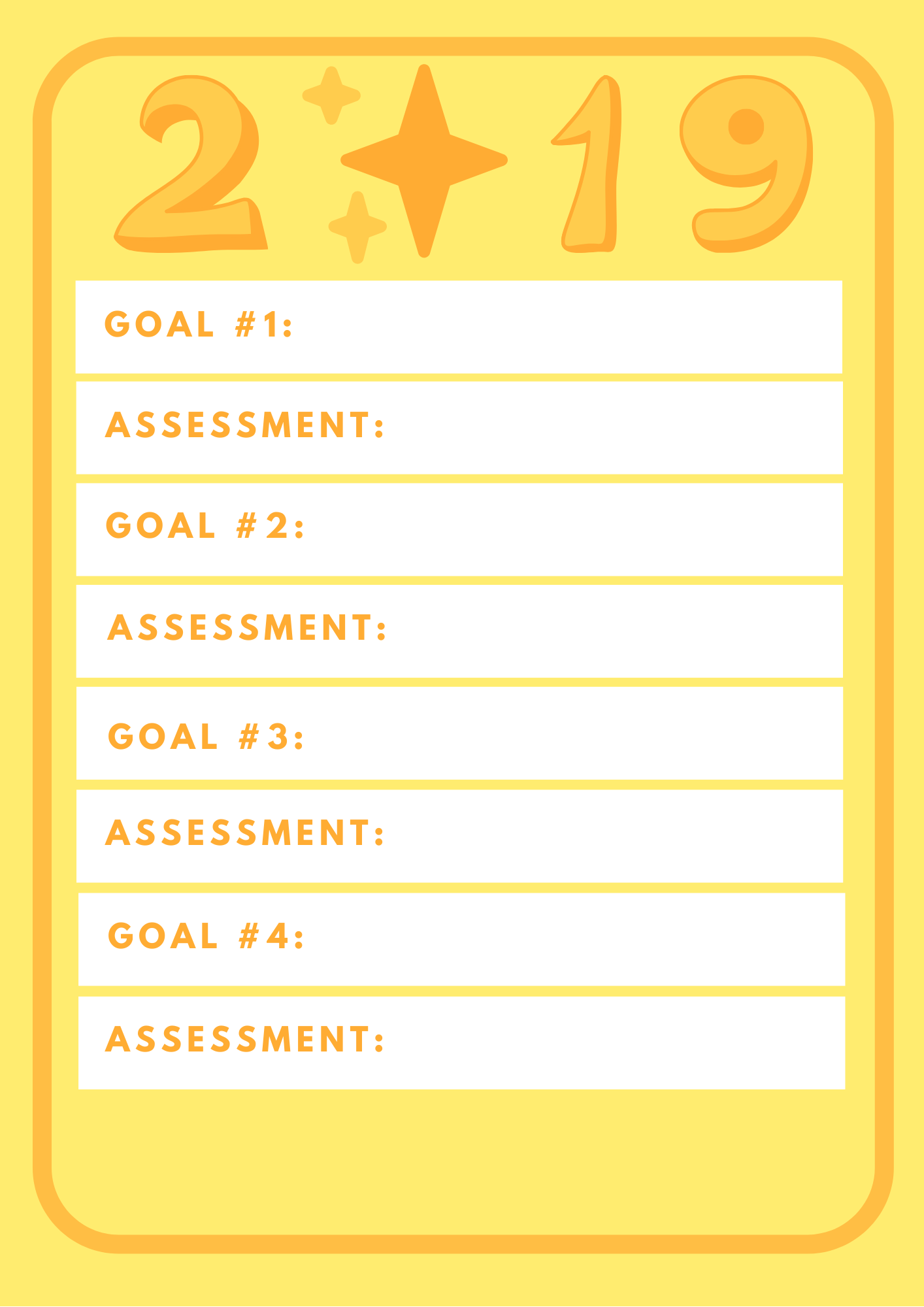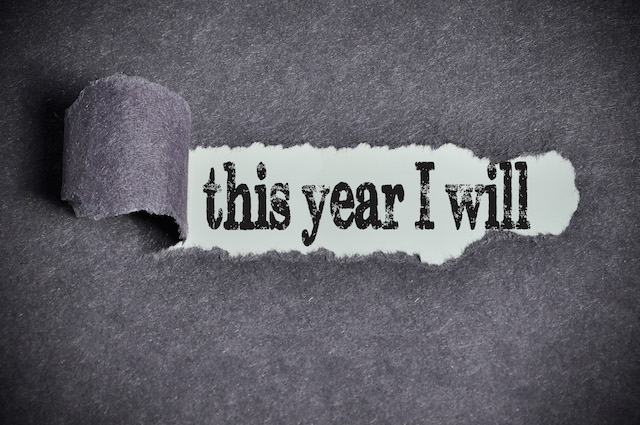New year, new you, right? Wrong. We hear that phrase all the time and while the sentiment behind it is nice, the truth is that you are the same you on January 1st as you were on December 31st. Sorry to burst any bubbles out there. You still have the same life, the same friends, the same temptations and challenges, and the same desires (usually). So while the new year doesn’t necessarily symbolize a new you, it CAN be an opportunity to set some new goals and hit them with a renewed motivation and dedication. Our opinion? The saying should go: New Year, Same You, New Dedication (to you).
We are welcoming 2020 on Wednesday and there are likely many of you who can’t wait for the fresh start of a new year. Not going to lie, sis, I’m right there with you. 2019 has been an incredible year. At times, it’s been very hard. At times, it’s been unbelievably joyful and fun. As is the same with most years, there are always ups and downs and there is HUGE value in looking back on your year and evaluating your experiences. Today, we are going to talk about how to assess your 2019 goals and progress (or lack thereof) and then how to strategize and move forward into 2020 with a renewed dedication to being your best self.
GOAL ASSESSMENT
Before we get into setting new goals for 2020, let’s take an honest look at 2019. Key word being *honesty.* It can be difficult to admit completely missing the mark on a goal that you were super excited about in January only to forget about it by April. There is no shame in failure, and I say that word hesitantly because it makes people cringe. But it shouldn’t. failure is just a stepping stone on the way to success. If you aren’t failing, it’s because you aren’t trying to grow and at ISN we believe that we’re never done growing. So don’t be put off by “failure.” Instead, embrace it and use it to continue moving forward.
As you are looking back on your 2019 goals, it can be helpful to use a print-out like the one pictured to the left to write everything down. That way you can be detailed about your experiences in achieving that goal. So let’s start!
There are three factors to consider when assessing your goals:
#1. What was the goal? State precisely exactly what the goal was that you wanted to achieve. That includes all of the SMART elements that went along with it. To perform an honest assessment, we have to have all the details. So rather than writing “lose weight” in the goal #1 space, write exactly how many pounds you wanted to lose, how much muscle you said you were going to gain, and in what time frame you wanted to do it in EXACTLY.
#2. What happened? Did you achieve the goal? Were you off by a couple pounds? Write down the results of your efforts to achieve your goal and be specific! If you didn’t hit your weight loss goal, don’t just write down “missed it.” How much did you miss your goal by? When did you stop making progress? These are the things we need to remember so that we are prepared when setting 2020 goals.
#3. What factors contributed to hitting or missing your goal? This one can be challenging because if you missed a goal, you may have to take some responsibility for what went wrong. Did you lose motivation and stop working towards your goal at the first sign of a setback? Did other areas of your life get busy and you realized that the goal you set was no longer a priority? Did you set too many goals to be able to focus on the ones that mattered? These are all important evaluation questions that will help you better define your goals for 2020. On the other hand, if you crushed your goals this year, it will be helpful to look back on how you kept at it when life got in your way so that you can focus your efforts similarly in the new year. Were there any particular strategies you employed that you might be able to lean on again? Be very specific and write it all down. Now that you have a full picture of 2019, you are ready to start making goals for 2020!
#1. Start with a couple categories. It’s helpful to narrow down your desired goals into two or three categories. For example, you may want to buy a home in 2020, start saving more money from your paycheck each month, and take a vacation over the summer. All of these aspirations can fall under the category of financial goals because, hey, they all require some dough! If you’re also looking to get in shape for that vacation, you may have some fitness goals to define as well. Having a few categories to pursue makes it a little easier to focus on the goals that matter most.
#2. Define the goals you want to pursue in each category. Again, try to stick to two or three goals in each category and space them out so you have something to focus on each quarter! One of the biggest mistakes we make when setting new goals is overcommitting. It’s hard enough to achieve a few goals, let alone tens of them. Take the example from above: if your financial goals include buying a home and taking a vacation, your home may be an annual goal (something that you want to be accomplished by 12/31/20.) Your vacation may be a Q2 goal if you want to take it over the summer and that will impact how you save your money in the first six months of the year.
#3. Write down any potential obstacles. This is where looking back to your 2019 assessment is very helpful. Let’s use a fitness goal as an example. Did you set a goal to lose weight last year and not quite hit it? Look at your assessment and see what contributed to that and be aware of that for any fitness goals you are setting for 2020. If it was summer time lake weekends and beer that hindered your weight loss progress last year, you can make a short-term summer goal to minimize those temptations and help you achieve success with your larger fitness goal in 2020.
#4. Set a timeline in your calendar or phone. As the year moves forward, it’s easy to forget about the goals you set on December 31st, especially as life’s stressors set in. Write down your goal markers throughout the year on your calendar or set reminders on your phone so you always stay in touch with your goals.
It’s okay for goals to be hopeful and optimistic and there’s something to be said for being aspirational! Those hopes and dreams are what keep you motivated when you get bored with putting in the work to achieve your goals. However, when it comes to goal setting, it’s important to set yourself up for success with realistic goals that are actually achievable. Creating a process and staying aware of obstacles that may distract your from your goals is being practical and thinking ahead.
We want your 2020 to be your greatest year yet. And that’s important because we didn’t say your greatest you. It’s a new year, SAME you, and new dedication to making your year the best you can. Changing your mindset on goal setting will have a big impact on the year ahead. But don’t just take our word for it! Give the 2019 assessment a try and let us know some of your 2020 goals in the comments!






